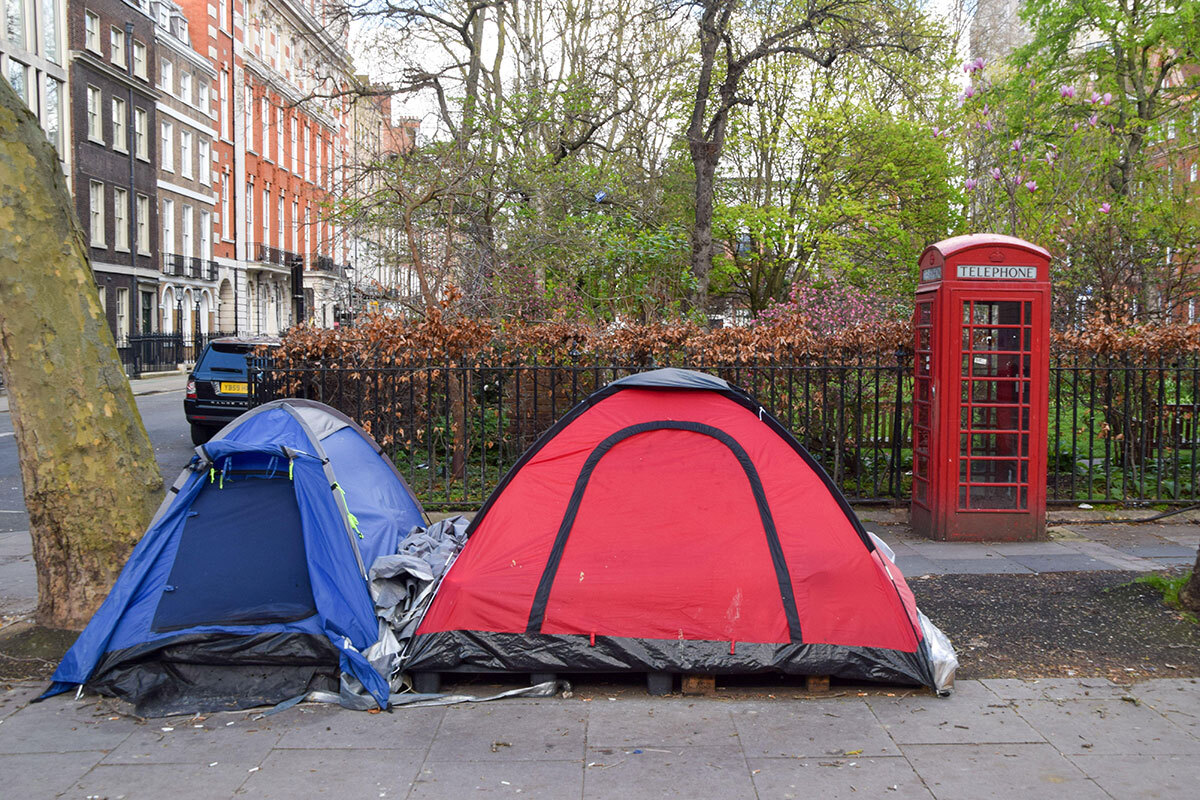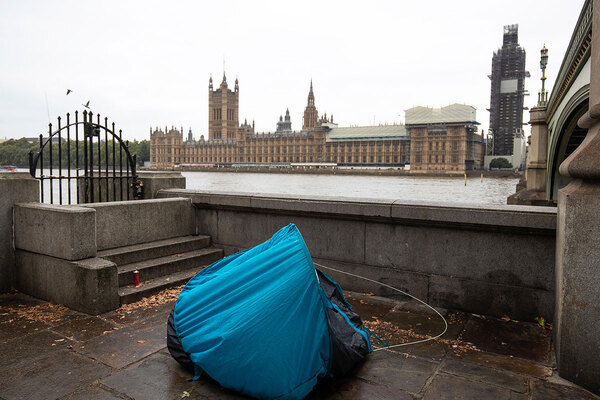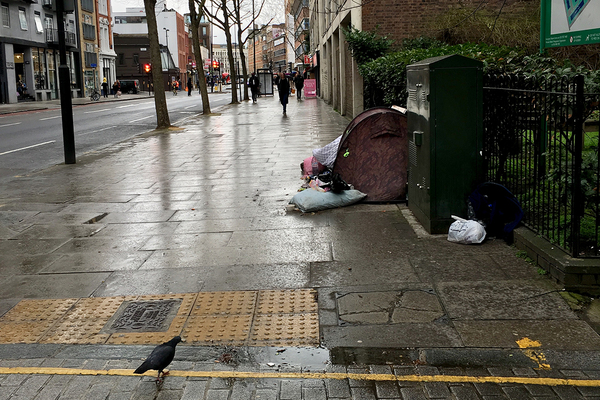NHF and Crisis urge ministers to reconsider plan to criminalise rough sleeping
The National Housing Federation (NHF), Crisis and 35 other organisations have urged ministers to reconsider plans to fine and imprison rough sleepers.

In a letter to home secretary James Cleverly, the charities and sector bodies said measures in the Criminal Justice Bill will “undermine” the government’s rough-sleeping strategy.
The bill, which will enter the report stage in parliament next week, contains powers for police to move “nuisance” rough sleepers on and fine or arrest them if they do not comply.
Under the wording of the bill, this includes people who look like they have slept rough or who merely “intend” to do so.
The charities, which also include Amnesty UK and The Big Issue, said these measures could see women “penalised” for seeking shelter and safety in well-lit doorways, or a fine of £2,500 issued to a person with an “excessive smell”.
“To support people away from rough sleeping, we must establish trust between the authorities and those on the streets and find ways to connect people in unsafe situations with housing and support,” the letter read.
“The threat of fines and prison risks the opposite – stigmatising those forced to sleep rough, and pushing them away from help and into more dangerous environments.”
Highlighting the government’s manifesto commitment to end rough sleeping by the end of 2024, the letter urged Mr Cleverly to reconsider the plans. It added: “Ending homelessness in a kind and person-centred way is an endeavour that should unite us all.”
The proposed measures have come under pressure from backbench Conservative MPs, who are seeking to block the plans in parliament.
An amendment to the bill proposed by Bob Blackman MP would require the government to issue guidance to councils and police forces about the use of move-on powers.
Critics of the bill have also called for the wording to be changed to place a greater emphasis on assistance for rough sleepers, rather than punishment.
“The wording at the moment is offensive,” Mr Blackman told Inside Housing. “The government says this is replacing the Vagrancy Act, but this makes it seem tame by comparison.”
Homelessness charities have long campaigned for the government to repeal the Vagrancy Act of 1824, but ministers have said they will only do so when replacement laws covering rough sleeping are in place.
The Home Office argues the measures will tackle rough sleeping and begging “where it causes damage, disruption, harassment or distress to the public” and avoid criminalising the “genuinely vulnerable”.
A Home Office spokesperson said: “The bill concentrates on behaviour that is anti-social, including causing environmental damage such as with excessive noise or litter. No one will be criminalised for simply having nowhere to live.
“We will continue to engage with stakeholders and parliamentary colleagues in the usual way as the bill passes through parliament.”
Sign up for our homelessness bulletin
Already have an account? Click here to manage your newsletters










